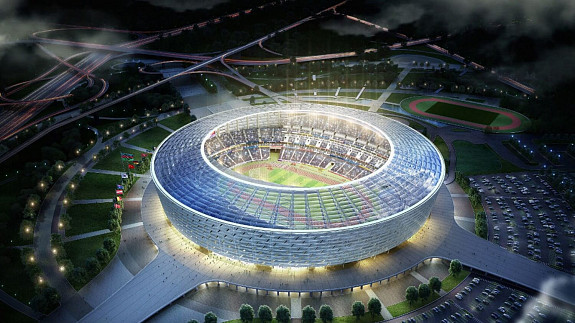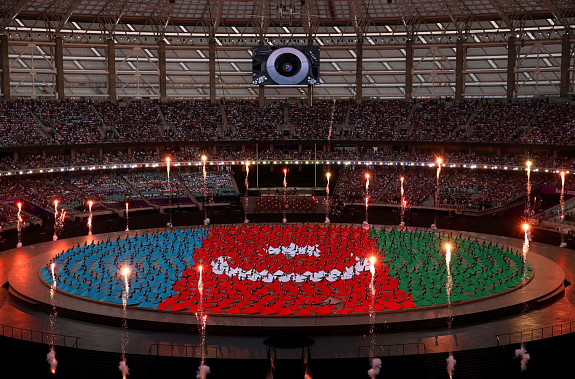The 1st European Games was a multi-sport event held in Baku, Azerbaijan, from June 12 to June 28, 2015. It was organized by the European Olympic Committees (EOC) and aimed to bring together athletes from European countries to compete in various sports disciplines. The event featured 20 sports, including both Olympic and non-Olympic sports, with over 6,000 athletes from 50 European nations participating.

The Baku European Games Organizing Committee (BEGOC) was the entity responsible for organizing and hosting the 1st European Games in Baku, Azerbaijan in 2015. The committee was established to oversee all aspects of planning, coordination, and execution of the event.
BEGOC worked closely with the European Olympic Committees (EOC) to ensure compliance with their guidelines and standards. They were also responsible for securing the necessary infrastructure and facilities, coordinating the participation of athletes and teams from European nations, organizing the sports competitions, managing ticketing and spectator services, and promoting the event on a national and international level.

One of the primary challenges for BEGOC was the development of the necessary infrastructure to host a multi-sport event of such magnitude. This involved constructing new sports venues, upgrading existing facilities, and ensuring the availability of appropriate transportation, accommodation, and other essential services for athletes, officials, and spectators.Coordinating the participation of athletes, teams, and officials from 50 European nations was a complex logistical task. BEGOC had to handle the logistics of travel, accommodation, and accreditation for thousands of participants, ensuring their smooth arrival, stay, and departure from Baku. This involved coordinating with national Olympic committees, sports federations, and other stakeholders to facilitate a seamless experience for all involved.
The European Games were a new addition to the sporting calendar, and BEGOC had to work diligently to gain recognition and attract attention. This included implementing marketing and communication strategies to engage the public, secure sponsorships, sell tickets, and create a positive image of Baku as a host city.
Technology Services played a crucial role in the 1st European Games by providing the necessary technological infrastructure, systems, and support to ensure the smooth operation of the event.
Eurodesign was selected by BEGOC as Technology Partner for design, supply and implementation of broad range of Technology Services. Eurodesign was responsible for designing, implementing, and managing the IT infrastructure required for the games. This involved setting up networks, servers, data centers, and communication systems to support various operational aspects such as data management and information sharing.
Eurodesign facilitated the deployment of information systems tailored to the specific needs of the European Games. This included comprehensive Active Directory service, identify management, monitoring systems, and other software solutions needed to streamline operations.
Eurodesign provided technical support prior and during event addressing issues related to technology, connectivity, software, and hardware to ensure uninterrupted operations and a positive user experience.
By delivering end-to-end managed service to BEGOC, Eurodesign has facilitated the automation and streamlining of various operational processes. This increased efficiency and reduced manual efforts in event planning and management. Technology services delivered by Eurodesign enabled effective communication and collaboration among different stakeholders involved in the Games. Through the implementation of robust communication systems, such as email, instant messaging, and collaboration platforms, organizers, athletes, officials, and volunteers could easily exchange information, coordinate logistics, and resolve issues in real-time.
Eurodesign has ensured the availability of core ICT services and range of mission critical services such as real-time results and scoring systems, data analysis, broadcasting, and media coverage of the Games.